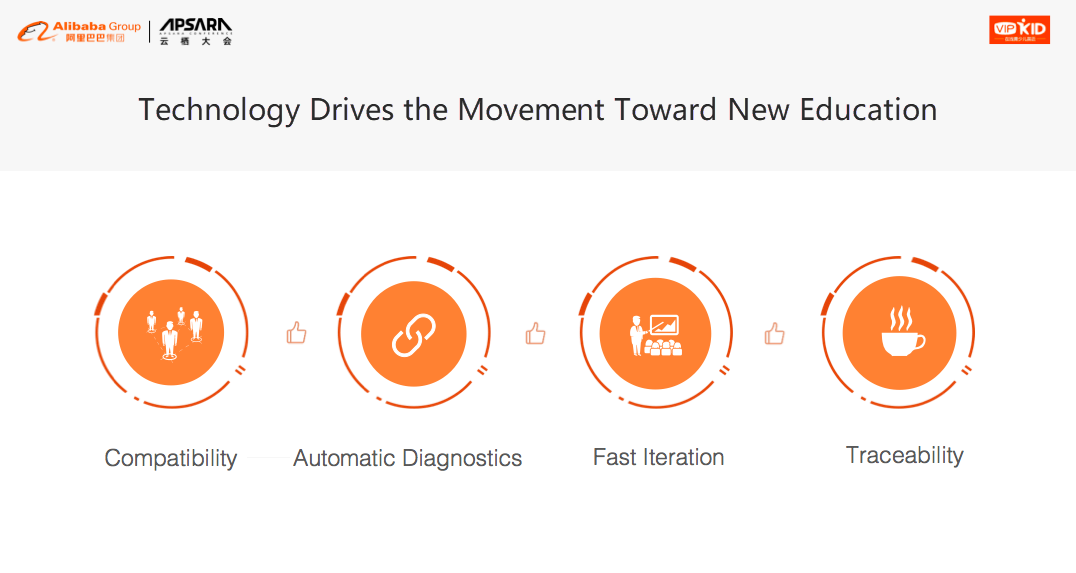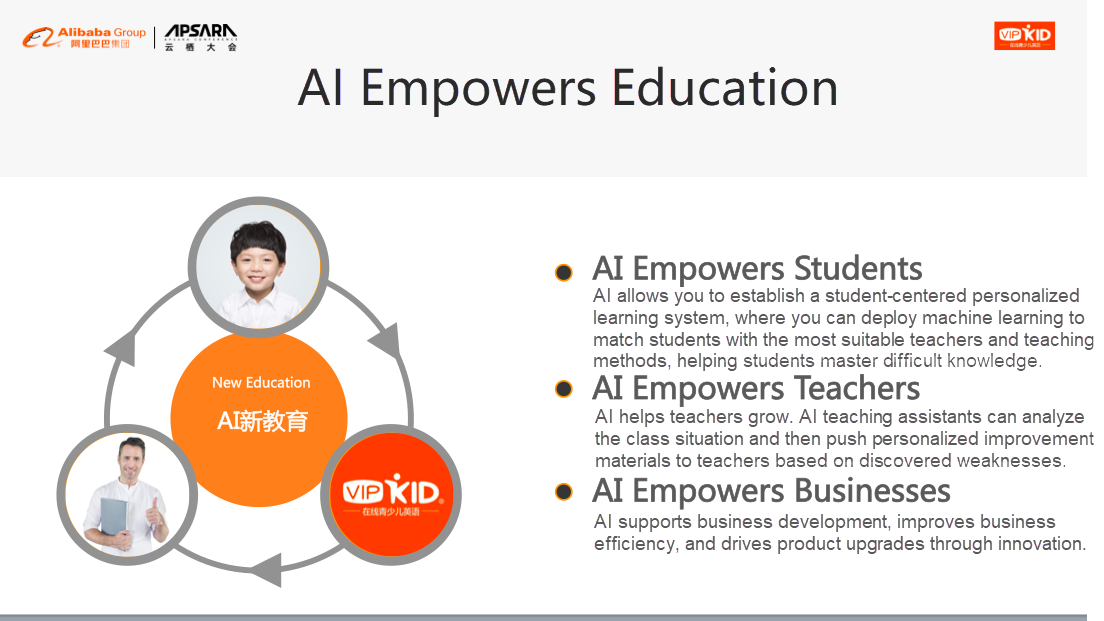In order to win this inevitable battle and fight against COVID-19, we must work together and share our experiences around the world. Join us in the fight against the outbreak through the Global MediXchange for Combating COVID-19 (GMCC) program. Apply now at https://covid-19.alibabacloud.com/
From the team at Alibaba Cloud Research Center.
All the predictions about online education market trends for the 2020 winter holiday in China turned out to be wrong. Originally, there was a high probability that the online education market would only calmly get through 2020 because the fierce competition during the "Summer War" in the kindergarten through 12th grade (K-12) education segment in 2019 had not completely faded away. In order to compete for new users and online traffic in the 2019 summer education market, ten major K-12 online education enterprises engaged in a fight for market share. According to a conservative estimate by industry insiders, they invested over 5 billion Chinese Yuan (over 700 million US dollars) in marketing, new user attractions, and commissions for high-quality teachers in less than 100 days.
"It was another capital-driven battle. People threw their money into the violent competition." Or at least that's how a reporter from Southern Weekly described this "Summer War", which brought slightly over 10 million new users to only the top companies. The reporter also pointed out the hidden concerns behind the K-12 online education market: The capital exhausted in the "Summer War" greatly pushed up the costs of each enterprise. However, the renewal rate in the autumn season following the marketing campaign was expected to be less than 30% for most enterprises. In addition, the new regulations implemented by the Ministry of Education for the online education industry also increased operating costs in the short run.

But all the predictions about the online education market trends made for the 2020 Chinese New Year holiday turned out to be wrong.
Many industry insiders made similar predictions: The online education market will definitely be "cold" in 2020. "We may have to tighten our belt for a while to avoid freezing stiff or even to death in this winter."
No one could have predicted that the coronavirus disease (COVID-19) would break out over the Chinese New Year holiday. When the Ministry of Education immediately issued the "Classes Suspended but Learning Continues" initiative, students from around the country flocked to online classrooms. Although this caused the industry penetration rate surged nearly 10-fold, online education enterprises faced some unprecedented problems:
Ho could they provide and support quality services to swarms of new users? How could they maintain system stability during peak traffic hours? How can they deal with teamwork, organizational processes, and educational administration? How can they make the best use of their technologies with limited manpower and resources?
And how fierce would this big test be? Well, here is some data to give you a glimpse of the situation:
So how did these K12 online education enterprises fare with this big test?
There was over a 10-fold growth increase in peak traffic. Such a traffic spike is a severe challenge for any online education enterprise. First, when facing such a challenge, an online education enterprise must ensure they a sufficient number of staff, this including teachers and teaching assistants, routine management personnel, and O&M technical engineers. To give a bit more context, in order to provide high-quality course content for primary and secondary school students, Yuanfudao mobilized 356 leading teachers, 412 teaching assistants, 151 technical engineers, and other relevant staff to continuously provide free live streaming classes during the COVID-19 outbreak. However, these human resources were still nowhere near enough.
The biggest difference between online education and conventional offline education is the very nature of being online. Online education provides educational services through the Internet, smart devices, and the digital courses that are broadcasted to students. Therefore, it is very important to ensure that online services that serve as the backbone of these e-learning services are operating continuously and stably and without lag, high latency, disconnection, or downtime.
With that said, it is unwise to depend on conventional data centers and IT architecture. The first reason is that it takes as long as three to six months to purchase, deploy, and use equipment for conventional on-premises data centers. This amount of time makes it hard for an enterprise to be able to cope with sudden traffic peaks in a reliable and sustainable manner. Second, the traffic peaks produced by the COVID-19 outbreak are only temporary. Therefore, purchasing large numbers of physical servers and bandwidth would produce considerable waste after the outbreak is over. Third, the manpower and time costs of development and O&M would be unnecessarily high because multiple technology stacks are required to cope with the traffic spikes in a conventional data center. In particular, the technology stacks used for distributed storage, distributed computing, video encoding and decoding, video encryption, and CDN distribution would all be required.
Only employing cloud services would be able to meet such challenges in a cost-effective manner. Let's describe the experience of a certain online education enterprise during the COVID-19 outbreak as an example. The enterprise scaled up its system three times and almost doubled its consumption of cloud resources in less than a week. However, the most recent time, it took less than 10 hours to inventory resources, deliver requirements, and scale up the system. The scale-up was completed at during the only morning hours, allowing millions of primary and secondary school students to attend online classes on the same day.
But the reality of the situation is that cloud computing provides much more than what we just described for online education. It can provide several things that can add value to online education services.

This is taken from a presentation entitled New Education Era Following AI Trends, delivered by VIPKid CTO Zheng Zibin at Apsara Conference 2019.
Below are some of the advantages cloud computing services were able to bring to China's online education market.
1. Fast launch even when starting from scratch: In Huanggang, Hubei Province, it took only one day to implement an online teaching platform through an online live streaming platform for the senior students (12th grade students) at Huanggang High School. As the technological foundation, ApsaraVideo services provided by Alibaba Cloud helped by autoscaling resources, processing massive volumes of data, intelligently applying the data, and deploying cloud products in vertical video scenarios such as live streaming and video on demand. This comprehensively ensured that the system could run smoothly in high-concurrency scenarios.
2. Deep penetration and wide coverage: Because teachers and students live all over the country for larger non-localized online platforms, only a large number of cross-city, cross-province, and cross-country connections can meet the needs of students located in more remote or rural regions. At Alibaba Cloud, edge nodes are built based on the providers' edge nodes and networks. This ensures the high stability of real-time live streaming and interactive networks. In addition, with our global coverage and multi-layer penetration features, edge nodes enable deep penetration and wide coverage of online education services.
3. Use on demand: The auto-scaling feature of Alibaba Cloud can cope with peak traffic, while conventional virtualization technologies usually result in a severe waste of resources outside of peak times. With the popularization of cloud-native technologies, containers have become a new option for elastic scaling. Based on the DevOps System, containers can be elastically scaled up and down. In addition, the emerging serverless approach not only ensures high availability of applications during traffic spikes and plunges, but also reduces idle computing resources during low-traffic periods.
4. AI + education: AI technologies will revolutionize the online education industry, especially in terms of efficiency. After online practice exams are taken by millions of people, AI can implement automatic correction, intelligent evaluation, and national ranking. In online classrooms, AI can provide intelligent customer services, automatically convert online classes to audio files for students to review afterward, and automatically analyze the video and audio files of teachers and students to evaluate the class quality based on its content. Just as Zheng Zibin, the CTO of VIPKid, pointed out at the Apsara Conference 2019, with the help of the cloud and AI technologies, online education is entering the AI era with individualized teaching being its focus.

This is taken from a presentation entitled New Education Era Following AI Trends, delivered by VIPKid CTO Zheng Zibin at Apsara Conference 2019.
5. Security and legal compliance: By their very nature of being online, online services exist several security challenges and compliance risks. In fact, in recent months, cyber attacks to online education platforms have increased dramatically. Online education and e-learning requires complete security protection solutions to prevent service interruptions caused by cyberattacks and other security threats. Alibaba Cloud provides comprehensive security assurance in the form of technologies, products, solutions, experiences, teams, and methodologies.
In the face of the "stress test" of this outbreak, the overall performance of the online education enterprises in China has been remarkable. This is not only reflected in its large scale coverage geographically speaking but also in terms of its coverage of different online teaching scenarios, including pre-class, in-class, after-class exercises.
As the "Classes Suspended but Learning Continues" Initiative was implemented from the Chinese central government to local governments, a great number of primary and secondary school students and parents have become deeply familiar with online education. This has played a very positive role in promoting the overall online education market. However, it's too soon to tell whether this will usher in a new extended period of rapid development.
Nevertheless, the COVID-19 outbreak has had a profound impact on the online education market. And, at present, we can draw the following conclusions.
1. Education authorities at all levels will become active promoters of online education. The value of online education has been fully demonstrated in diversifying teaching methods and improving educational equity and inclusiveness. Online education will become a standard learning tool and method all across China. After the COVID-19 outbreak is over, more conventional education authorities and schools will engage in online education or even establish innovative partnerships with online education enterprises. For example, primary and secondary education alliances have emerged in Beijing, Shanghai, and Guangzhou. In the future, online education will be deeply integrated with learning in physical classrooms.
For this, education authorities and schools can benefit from a full-stack integrated solution that has lower barriers to adoption, high integration, and full coverage of IaaS, PaaS, and SaaS and build the solution in a public cloud. This lowers the requirements for technical engineers, simplifies installation and deployment, and speeds up system acceptance and launch.
2. Learning plans and course content will be more personalized. In the future, the personalization-oriented online education platform will automatically and intelligently formulate personal learning plans and trajectories and identify strengths, weaknesses, and learning preferences of each student. This will help teachers develop better learning strategies and programs for different students. In addition, based on knowledge graphs, solutions will be able to automatically produce course content, such as automatically storing teaching content and adding and translating subtitles.
3. Online education enterprises will build brand new digital and intelligent evaluation systems. Such systems can provide automatic correction, intelligent evaluation, and national rankings after online practice exams are taken by millions of people. In addition, the systems will be able to monitor the quality of courses, recognize English pronunciation, and analyze error-prone questions and learning models. These new education systems will use digital and intelligent technologies to profoundly change conventional learning systems and evaluate the interaction between teachers and students, making teaching and learning interaction truly natural, smooth, and comprehensive.
4. Alibaba Cloud full-stack solutions will become the key support for online education. Currently, online education is provided in various forms, including open classes, live streaming, video-on-demand, VR, AR, one-on-one (1-to-1), multi-party interactive teaching and learning, and student-to-student interactive learning. More new forms are likely to emerge in the future. This means that the technological stacks for online education are extremely complex. For example, the solution must support tens of thousands of concurrent online users, multiple interactive methods, and even automatic translation. Therefore, online education enterprises must deploy innovative solutions that allow fast iteration on the cloud.
During the COVID-19 outbreak, full-stack solutions that integrate the capabilities of Alibaba Cloud, the DAMO Academy, Youku, and DingTalk were deployed on Alibaba Cloud. A full-stack solution can provide users with many convenient and innovative services by leveraging the capabilities of terminals, such as DingTalk, Youku, Mini Programs, and user-defined applications.
5. Online organization, intelligent collaboration, and service digitization will determine the winners in the online education field. Nowadays, the need to manually review the legal compliance of live streaming education content results in high operating costs. The daily repetitive consulting service with sparse business opportunities occupies a large amount of manpower. The various multi-directional communication between teachers, students, parents, and managers greatly decreases daily collaborative efficiency.
To achieve rapid development, high efficiency, cost reduction, and fast collaboration, online education enterprises must enable online and digital collaboration between teaching and operation teams. In particular, it is essential to empower marketing and teaching services through digital and intelligent technologies. For example, the operating efficiency of online educational enterprises can be effectively improved simply by extracting the three to five minutes of key content and providing simultaneous translation and collaborative notes.
At VIPKid, thanks to the capabilities provided by Alibaba Cloud, the accuracy of automatic course quality detection has been obviously improved. Specifically, the detection of the content, time points, and instances of encouraging words spoken by English teachers has attained an accuracy of 90%, and the detection of the speech rate of English teachers exceeds 90%.
The outbreak of COVID-19 did warm up the online education market in the "winter" of the industry. However, this was not a real blessing. Here, I would like to end with the words of Tang Xiaozhe, a technical director at Hujiang Education Technologies Co. Ltd, in a recent media interview:
"We have reached a consensus internally that this (outbreak) cannot be said to be an opportunity for our development, because the price of the outbreak is extraordinarily high. During such a difficult period, it is our duty to help more schools, institutions, and teachers provide students with stable online learning services through the Internet and go through the difficult time together."
At present, Alibaba Cloud has launched special policies, such as providing products and technologies for all Internet customers free of charge during the outbreak.
The ApsaraVideo series products are now available for free, including ApsaraVideo Live, ApsaraVideo VOD, and Real-Time Communication (RTC). And in terms of security, free consulting services and free trials of security products are provided. Alibaba Cloud also offers discounts on services such as Short Message Service, Voice Messaging Service, and Phone Number Verification Service. In addition, Alibaba Cloud has launched a "Classes Suspended but Learning Continues" alliance. Currently, we have partnered with several alliance members to build "Classrooms in the Air" for Wuhan Education Cloud. This provides free cloud resources and services to ensure that local primary and secondary schools can carry out online education according to their teaching plans.
While continuing to wage war against the worldwide outbreak, Alibaba Cloud will play its part and will do all it can to help others in their battles with the coronavirus. Learn how we can support your business continuity at https://www.alibabacloud.com/campaign/fight-coronavirus-covid-19
Learn How an Open-Source Microservice Component Has Supported Double 11 for the Past 10 Years
See How Alibaba and VIPKid are Doing Their Part in the Fight against COVID-19

2,597 posts | 775 followers
FollowAlibaba Clouder - March 11, 2020
Alibaba Clouder - April 3, 2020
Alibaba Clouder - March 20, 2020
Alibaba Clouder - April 29, 2020
Alibaba Clouder - April 16, 2020
Alibaba Clouder - April 8, 2020

2,597 posts | 775 followers
Follow Container Service for Kubernetes
Container Service for Kubernetes
Alibaba Cloud Container Service for Kubernetes is a fully managed cloud container management service that supports native Kubernetes and integrates with other Alibaba Cloud products.
Learn More Platform For AI
Platform For AI
A platform that provides enterprise-level data modeling services based on machine learning algorithms to quickly meet your needs for data-driven operations.
Learn More MaxCompute
MaxCompute
Conduct large-scale data warehousing with MaxCompute
Learn MoreMore Posts by Alibaba Clouder
Start building with 50+ products and up to 12 months usage for Elastic Compute Service
Get Started for Free Get Started for Free